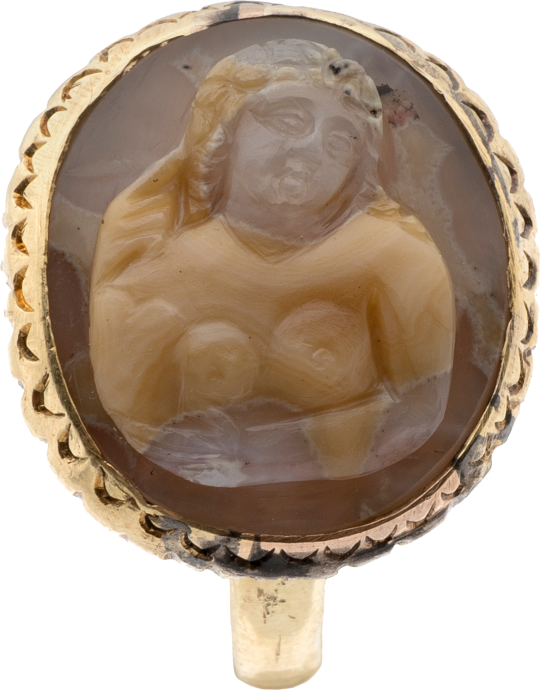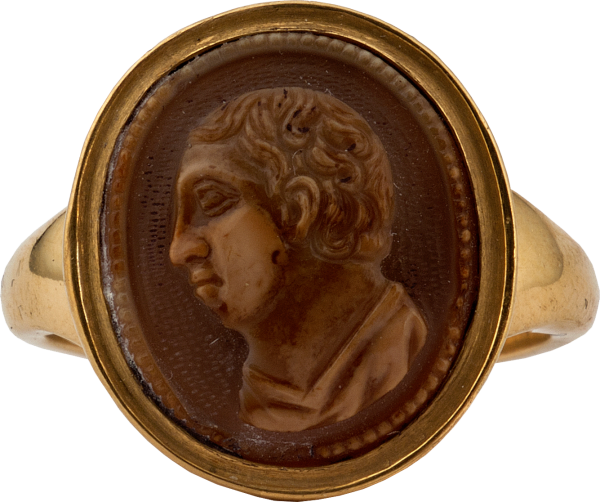


Renaissance Cameo Ring
, second half of 16th century in a late 18th century ring



Renaissance Cameo Ring
Description
In the sixteenth and seventeenth centuries young women were often represented as a female bust, sometimes nude or scantily draped in a suggestive pose. Here the gem-cutter has taken advantage of a taupe patch in the stone to give the impression of a veil-like cover of the woman's torso. The cameo dates to the second half of the sixteenth century when Italy was the center for gem-cutting on hardstones, mainly in the north around Milan. The ancient art of gem-engraving was revived and gems from Antiquity became sought after collector's items. In the late eighteenth century there was a new wave of interest in engraved gems, and earlier cameos were either kept in cabinets or set in contemporary jewels, such as this ring.
Cameo of a nude female bust in frontal view with the head slightly turned in three quarter profile. With her left hand she reaches under her breasts towards the drapery which barely covers her right shoulder. With her raised right hand she grips a veil in her hair tied with a fillet. The ring with a plain hoop has a bezel with ribbed underside and a scalloped border with black enamel surrounds the cameo. The ring is in good condition and shows traces of wear.
Provenance:
The Ceres Collection, New York, a collection of cameos and intaglios formed between the 1930's to 1990's.
Literature:
This popular cameo motif comes in a number of variations and choice of gemstones in the 16th and 17th centuries. Examples can be found in the Staatliche Münzsammmlung Munich (published in Ingrid S. Weber, Geschnittene Steine aus altbayerischem Besitz, Kameen und Intaglien des 15. bis 17. Jahrhunderts in der Staatlichen Münzsammlung, München 2001, nos. 48 - 65) and in the Royal Collection of Her Majesty the Queen (Kirsten Piacenti Aschengreen and John Boardman, Ancient and Modern Gems and Jewels in the Collection of Her Majesty the Queen, London 2008, nos. 156-161) and in the Kunsthistorisches Museum Vienna (published in Distelberger, 2002, no. 139).
For comparisons of the ring type, see the Alice and Louis Koch Collection (published in Chadour 1994, vol. 2, nos. 1177; 1194; 1221; 1229).
